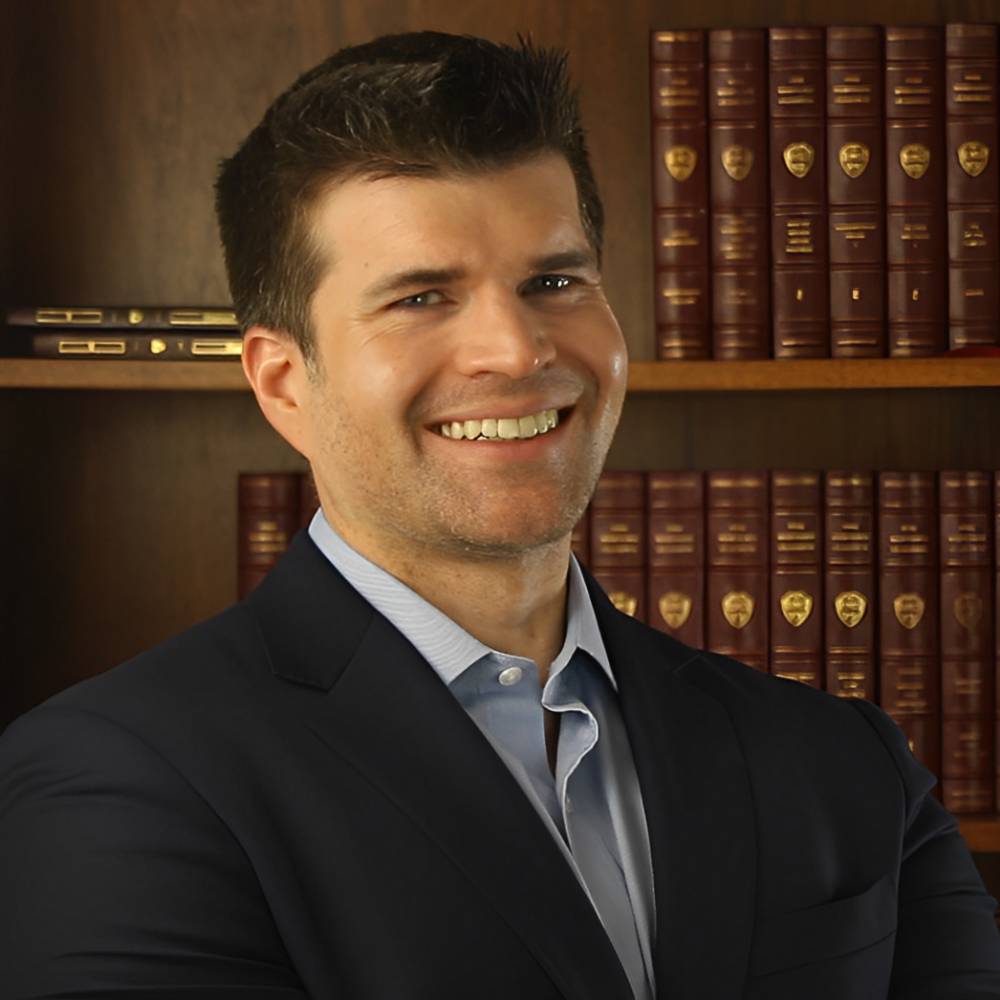Maricopa County Measures to Prevent Spread of Coronavirus Appear Underdeveloped
The Maricopa County Attorney, Allister Adel, issued an email to employees of the County Attorney’s Office last Thursday updating them on what efforts the County is taking in light of the coronavirus outbreak. She states in the email that MCAO is “currently working on plans to help protect the health and safety” of its employees. The email goes on to remark that the prosecutor’s office is “mindful” of its role “as a government agency to reduce the spread of the virus and its impact to the criminal justice system.”
The steps being taken by Maricopa County so far, however, appear to be severely limited.
While Ms. Adel’s email notes that the prosecutor’s office will suspend a work lunch program and work-related travel, it fails to note other concrete steps that it has taken. And while a travel suspension is not a negligible step, such air travel is already nearly non-existent, to begin with among line prosecutors.
A more immediate concern is the near-constant demand for prosecutors to appear in the County courthouse. Criminal hearings are scheduled every day, and in-person attendance at those hearings is the norm. However, neither the County Attorney’s Office nor the County administration have yet announced steps that they have implemented to prevent the spread of COVID-19 in the courthouse or among county office buildings (aside from general personal hygiene recommendations).
Ms. Adel indicates that the County is “exploring options” to “more regularly sanitize the public areas” of the County Attorney’s Office. But it is unclear from the email what these options are or why the County has not yet implemented them.
On Friday, March 13, the Maricopa County Manager, Joy Rich, also sent an email to Maricopa County Employees regarding COVID-19. This email also fails to describe any concrete steps that the County has taken to prevent the spread of the coronavirus in the Arizona court system.
Ms. Rich’s email reiterates that employees should follow standard guidelines for disease prevention, such as avoiding close contact with those who are sick, avoiding touching one’s face, covering one’s mouth, etc.
The County Manager’s email fails to announce concrete actions that Maricopa County intends to take to sanitize county-controlled properties, such as the Maricopa County courthouse, and to reduce the spread of disease on those properties.
It appears that the Maricopa County courthouse still lacks proper hand sanitization stations at the entrances of the courthouse. One would think that this is a very basic measure that could be implemented quickly. Given the large number of people funneling through the courthouse daily, the lack of proper sanitization stations is concerning to say the least.
Scottsdale Municipal Court Is Business-as-Usual
The official word of the City of Scottsdale at this time appears to be even more muted than that of Maricopa County. According to the City’s official website, the level of community risk is “low” and touts that Scottsdale is “open for business.”
Scottsdale has echoed the advice of Maricopa County Public Health, and states “cancellation of mass gatherings and events due to COVID-19 concerns is not generally encouraged.”
However, on Sunday night, Governor Ducey issued a news release announcing the closure of schools and the canceling of mass gatherings, and events with 50 people or more.
It remains to be seen how the City of Scottsdale will update its recommendations based on this announcement from the Governor’s Office and how this will affect the Scottsdale Municipal Court.
The Measures Taken in Other States to Address Coronavirus in Court System
Arizona’s approach contrasts with the measures taken so far by the California court systems in response to the coronavirus pandemic. In California, where the number of COVID-19 infections is markedly larger than in Arizona, it is being reported that courts have instituted month-long delays of trial, instituted a process of automatically excusing jurors over 60 years old, and in some cases closing courthouses altogether.
The Chief US District Court Judge in LA County, for example, has ordered that no jurors be called to either criminal or civil trial until April 13. Trials have also been pushed back at least 30 days. A court spokeswoman for LA county explained that they were attempting to balance the requirements of due process to a speedy trial with public health concerns.
Meanwhile, courts throughout Washington and New York have suspended new jury trials. Courts in Washington have also suspended in-person hearings.
Arizona courts and Maricopa County do not seem to have yet issued orders of similar preventative measures.
On March 4 the Arizona Supreme Court Chief Justice Robert Brutinel signed an administrative order that gave authority to the presiding judges in each Arizona county to adopt or suspend local court rules and orders in relation to the coronavirus outbreak.
This has not yet seemed to have been implemented by the Maricopa County court system as a whole.
In-Custody Criminal Defendants Face Heightened Risk
The lack of proactive measures to prevent the spread of COVID-19 in the court system is an acute problem for two reasons.
First, the courthouse daily witnesses the large gathering of individuals at a time when the nation’s top health experts have advised that people practice “social distancing.” Aggravating the situation is that, unlike sporting events or concerts, attendance at court hearings is usually mandatory for those involved, as is assembling for jury duty.
Second, the jails in Maricopa County appear to be an ideal location for the spread of communicable diseases such as COVID-19. Those who are in custody in the county jails while facing trial face the prospect of crowded county jails and confined spaces with little in the way of personal sanitization compared to what is available outside of custody. These inmates are then regularly transported to the courthouse to attend their criminal hearings. It is a well-documented fact that diseases spread among prisoners at levels far in excess of what occurs in the overall American population at large. It seems that this situation should make the sanitation of jails and those buildings connected to the criminal justice system a top priority.
What Can In-Custody Defendant’s Do to Minimize Jail Exposure to Disease?
During the outbreak of COVID-19, it is in your obvious interest to minimize the amount of jail time that you receive as much as possible. If a bond has been set in your case, then you will be housed in jail until your trial date unless the bond is paid. Of course, minimizing jail time is preferable under any circumstances. But in the face of a global pandemic, the urgency to do so is even more apparent.
A Scottsdale criminal defense attorney can help minimize your exposure to jail. Aside from securing a favorable plea deal, dismissal of charges, or acquittal, a defense attorney can also request the court impose more lenient release conditions on a defendant. This is what is known as filing a motion for modification of release conditions. This modification can include a reduction in the defendant’s bond amount, a release to pre-trial services, or a release on your “own recognizance.”
In the current environment, a request for modification of release conditions is well worth the effort to minimize exposure to infectious diseases at the Maricopa County jail.
How Can COVID-19 Affect Jury Duty?
Even if you are not involved in a criminal case, you might be called to serve on jury duty. While California courts have delayed trials and automatically exempt people over 60 from jury duty, Arizona courts are still business-as-usual.
If you have experienced jury duty in an Arizona court, whether it be the Scottsdale Municipal Court or the Maricopa County court system, you know that the process of jury duty requires gathering in large, crowded spaces and staying there for hours on end. In the Maricopa County courthouse, hundreds of people are called to jury duty every day to fill the role of jurors on the court’s busy calendar. The jurors are taken into a large room in the courthouse and hundreds are made to sit together and wait to be called into a courtroom.
Once called into the courtroom, jurors will usually fill the seats of the courtroom sitting closely together during the long process of voir dire, where the lawyers select the jurors who will hear a case. This process can take half a day to a day—or even more—depending on the complexity of the case.
During this process, it is virtually impossible to maintain the “social distance” recommended by health officials.
If you have not yet been excused from jury duty, you can usually postpone your service by calling the courthouse. If you have not yet done so, now would be the time to exercise your ability to postpone jury duty, if possible, while the court system figures out how to best handle jury duty during the Corona outbreak.
Conclusion
Arizona’s court system should take a lesson from those states that have been hardest hit by the COVID-19 outbreak. Courts throughout Washington and New York have taken measures such as suspended new trials and postponing in-person hearings. Any attorney marginally familiar with the court system will know that is an ideal venue for spreading contagious diseases. “Exploring Options” to sanitize public areas simply does not cut it.
Rather than take the reactive, wait-and-see, approach that it has done so far, those in charge of Arizona’s courts would be well-advised to get out in front of this issue and take pro-active steps to prevent the spread of coronavirus while Arizona still has relatively few cases.


